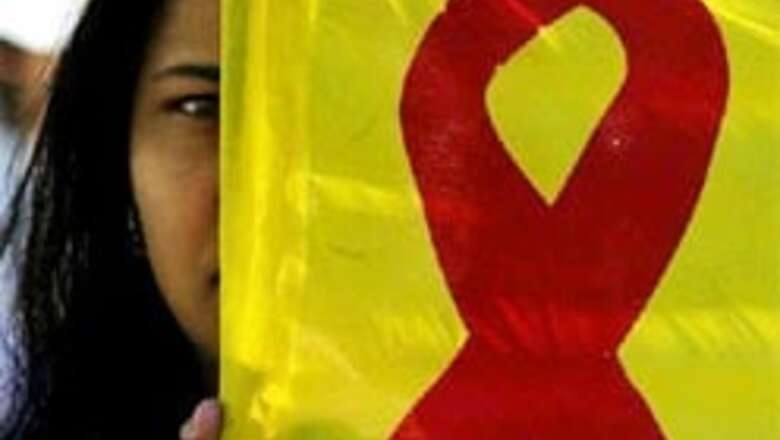
views
New Delhi: A Rs 342.81-crore scheme aimed at preventing transmission of HIV/AIDS from mother to child is being implemented in India with financial assistance from the Gobal Fund.
The Cabinet Committee on Economic Affairs on Thursday night gave its approval for implementation of the project titled "Prevention of mother to child transmission of HIV/AIDS" to fight AIDS, Tuberculosis and Malaria (Round II funding) as additionality over and above the provision for integrated National AIDS Control Programme (NACP).
Information and Broadcasting Minister Priya Ranjan Dasmunsi told mediapersons after a Cabinet meeting that the benefit of the project is to reduce the transmission of HIV infection in women, their partners and infants and to provide HIV/AIDS care including antiretroviral therapy.
When an HIV-positive woman becomes pregnant, there is a 35 per cent chances that she would transmit the virus to her child if no preventative action is taken. Every year, more than 700,000 children become HIV-positive worldwide via transmission from their parents and about 15-20 per cent of them are infected during pregnancy, 50 per cent others during delivery and 33 per cent through breastfeeding.
Around 38 per cent of women in India are living with HIV, the majority of whom have acquired the virus from regular partners who were infected during sex. In India, mother-to-child HIV transmission has been found to be the second major factor behind the spread of the disease. In terms of risks also, a baby is at 25-30 per cent risk of receiving the HIV virus from its mother if she is infected.
Despite the obvious benefits of anti-retroviral drug therapy and its low cost, the vast majority of HIV-infected pregnant women cannot afford the drugs or they aren’t simply available. It is this area, the government now plans to target under the new initiative.
PAGE_BREAK
The Centre first launched the mother-to-child AIDS transmission prevention programme in 2000 through a pilot project at 11 medical institutions across the country. Some 16,500 pregnant women were among the first batch of mothers to go under antenatal care. At monthly sessions with specially-trained counsellors, these women received information about pregnancy, diet, exercise, breastfeeding and HIV/AIDS. They were also offered free HIV tests. Those who tested positive were offered free AZT treatment as well as iron and folic acid supplements. Some lucky babies born from these mothers tested later negative for the disease.
Some 3,500 medical centres across the country today offer these HIV prevention services, counseling and testing facilities with the provision of prophylaxis treatment for HIV-infected pregnant women to prevent mother-to-child transmission. This is besides free anti-retroviral treatment is being provided through 96 government hospitals. Free CD4 test to assess the immune status is provided to children below poverty line.
Experts say pregnant women can halve the chances of passing HIV on to their babies by taking antiretroviral drugs. The treatment options include a one-month course of zidovudine (AZT) during the last weeks of pregnancy, or a single dose of nevirapine during delivery, followed by a single dose to the infant within 72 hours of birth. The single dose and follow-up can be administered for as little as $10. Obstetrical procedures such as a Caesarean section may also reduce transmission but is often not feasible in many developing countries.
Strategies for decreasing the post-birth risks of HIV infection include shortening the duration of breastfeeding and preventing and promptly treating breast problems, along with sores or thrush in an infant’s mouth. Studies have found that reducing the length of breastfeeding from two years to six months alone can reduce the risk of transmission by two thirds.




















Comments
0 comment